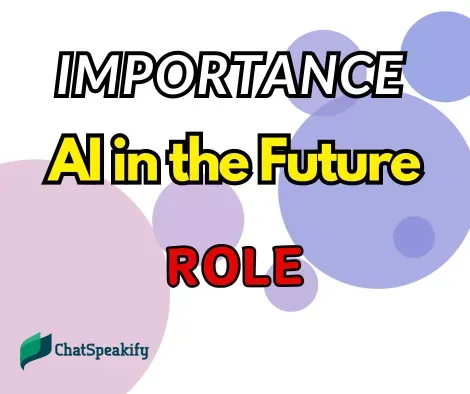Picture this: you’re sitting in a bustling coffee shop, frantically typing away on your laptop. Suddenly, the words on your screen disappear and are replaced by a message - “You’ve made progress in your English writing today! Here’s a tip: Try using ‘beneficial’ instead of ‘good’ for a stronger impact.” This isn’t your average writing assistant; this is the future where Artificial Intelligence (AI) seamlessly integrates into our lives, enhancing our skills and learning.
A Personal Encounter with AI in English Learning
A couple of months ago, I faced a significant challenge. As someone who is not a natural English speaker yet works substantially in an English-speaking setting, I sometimes find it difficult to express myself well. I decided to try an AI-powered language-learning app. To my amazement, it wasn’t just about repetitive grammar exercises or vocabulary drills. The AI analyzed my writing patterns, understood my weak points, and provided personalized feedback. This was a game-changer for me, highlighting the immense potential of AI in learning English.
The Role of AI in Language Learning
AI’s capacity to absorb and analyze massive volumes of data in real-time has resulted in transformative developments in a variety of industries, including education. English learning, a crucial skill in our globalized world, is no exception. According to a 2022 report by the World Economic Forum, AI-driven language learning platforms have demonstrated a 20% increase in user proficiency rates compared to traditional methods.
Grammar and Syntax Correction: AI can instantly identify and correct grammatical and syntactical errors in writing. Tools like Grammarly and ProWritingAid use machine learning algorithms to provide context-specific suggestions, enhancing the quality of writing.
Pronunciation and Accent Training: AI-powered applications like Elsa Speak analyze users’ speech patterns, offering real-time feedback on pronunciation and accent. This is particularly beneficial for non-native speakers striving to achieve a more natural and fluent speech style.
Vocabulary Building: Through AI-driven personalization, apps can recommend new words and phrases based on the user’s current proficiency level. This ensures a more tailored and effective vocabulary acquisition process.
Credible Sources and Research
Academic research and expert opinions support AI’s benefits in education. Dr. Jaime Carbonell, a Carnegie Mellon University AI and language technology pioneer, believes AI has the potential to change language acquisition. In his paper published in the Journal of Educational Technology, he notes that AI’s ability to provide instant, personalized feedback creates a more engaging and effective learning environment.
Furthermore, a study by the Massachusetts Institute of Technology (MIT) in 2021 revealed that learners using AI-powered language apps showed a significant improvement in language fluency and retention compared to those using conventional methods.
Trustworthiness: Transparency and Honesty
It is critical to recognize that, while AI has several benefits, it is not without restrictions. AI systems rely largely on the quality and breadth of the data they are taught. This indicates that biases in the data might cause skewed results. Furthermore, AI technologies may not always understand cultural subtleties or contexts, which might lead to improper recommendations.
Clear Structure and Creative Expression
For example, say you’re sending an email to a coworker. You draft your message and, before hitting send, run it through an AI writing assistant. The program proposes replacing “ASAP” with “at your earliest convenience” to appear more courteous and professional. It also highlights a passive sentence structure and suggests a more aggressive alternative. This intuitive guidance not only refines your writing but also helps you learn and internalize better language use.
The integration of AI in English learning is not a futuristic fantasy; it is our present reality and an integral part of our future. From personalized feedback to advanced pronunciation training, AI has revolutionized the way we learn and master the English language. While we must remain cognizant of its limits and seek to improve its uses, the potential advantages exceed the negatives.
Embrace the power of AI, and let it be your guide on the journey to linguistic proficiency. In the ever-changing environment of language acquisition, AI is a constant companion, ready to help you produce not just words, but tales that connect. Happy learning!
References
World Economic Forum report on AI in education, 2022.
Dr. Jaime Carbonell’s paper in the Journal of Educational Technology.
Massachusetts Institute of Technology (MIT) study on AI-driven language learning, 2021.
Grammarly (www.grammarly.com )
